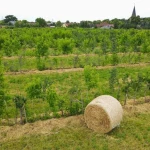New Zealand’s banks are facing increased scrutiny over their role in stifling competition, with a particular focus on how their climate policies may be impacting farmers. This inquiry, led by Parliament’s finance and expenditure select committee, is broader than initially anticipated. It investigates whether banks, by joining the Net-Zero Banking Alliance, are "colluding" to limit lending to high-emission farming activities, thereby regulating farmers' actions. The committee’s concerns align with those of Federated Farmers, who argue that the banks' collective climate strategies may unfairly restrict farmers' access to capital.
The Net-Zero Banking Alliance, formed at COP26, includes major banks like BNZ, ANZ, ASB, Westpac, and Rabobank, all committed to reducing emissions in their lending portfolios by 2050. However, there are concerns that these policies could limit funding for certain agricultural activities, particularly those associated with higher emissions, like dairy farming.
Stuart Smith, chair of the inquiry, questions whether these environmental policies should be determined by banks rather than elected governments. The inquiry also examines whether the banks' approach could lead to reduced competition, particularly in rural banking. The New Zealand Banking Association has defended the banks, stating that agribusiness lending is inherently riskier and that interest rates reflect this risk. However, with rising interest rates, the disparity between residential and farming business loans has become more pronounced, raising concerns within rural communities.
As the Commerce Commission prepares to release its market study on personal banking competition, this inquiry seeks to determine the impact of environmental policies on farmers' access to capital and whether these policies could have broader economic consequences.







